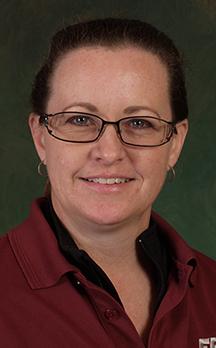 by Jennie Van Tuyl
by Jennie Van Tuyl
I get several phone calls a month from Network members asking how they can speak with the attorney they have chosen from our affiliated attorney list. They call and ask to speak to the attorney and never get a call back, or send email that goes unanswered. Since we recommend that Network members know whom they would call for representation after self defense and even provide a space on the back of Network membership cards for members to write in their lawyer’s name and phone number, I would like to help you reduce your frustration level when you are shopping for an attorney.
I have an AA in legal assisting and spent more than 10 years on the other end of the phone as a paralegal to a few different attorneys. I would get calls all the time from prospective clients wanting to talk to the attorney and not to me. They would say it was a private matter or that I could not help them and they needed the attorney.
They did not understand that most attorneys do not do initial client screening/intake. That is the job of the trained support staff. Attorneys usually don’t talk to clients until the initial consultation. The attorney’s secretary, paralegal or assistant knows everything that is going on with the clients. They do initial client intake, make up the files, and type all the letters and court documents. In many cases, the attorney will also let them give certain case status reports to clients.
As a paralegal, I did most of the case management, freeing up the attorney to do what only he or she could do. Attorneys need to go to court, make settlement negotiations, be at depositions with clients, and meet with clients when they need to discuss issues in person.
When you call to make an appointment to go meet an attorney, ask to speak to the attorney’s assistant, tell him or her that you are a member of the Armed Citizens’ Legal Defense Network and that you got the attorney’s name from our affiliated attorney list.
Then tell them that you would like to schedule a short consultation and ask for an appointment. It is up to the attorney whether they charge a consultation fee, so ask about this during your initial call to the office.
Several days before your appointment gather any information you want to take to the consultation. Write a list of questions you wish to ask the attorney. You may want to ask about local laws, how the local prosecutor tends to view armed citizens and those that do have to defend themselves. You might ask for an after-hours emergency phone number. You likely will not get the attorney’s home or cell number, but many firms use an answering service. The service will have criteria on getting callers immediately to the attorney, so ask the attorney about it so you know what to expect.
Some law firms do not meet with people who do not have a pending legal issue. Personally, I would have a very hard time writing an attorney’s name on my Network member card if I could not at least meet with an associate or paralegal at the firm. The assistant or paralegal can explain how the office works to make the prospective client feel comfortable with their process.
Sometimes Network members become frustrated when they attempt to contact an affiliated attorney by email. Until you are known as a client, email is not a great business tool. Email can be terse or overly brief and too easily misunderstood or may fail to fully answer questions. I personally do not believe email is a good option when you are trying to initially contact an attorney you would call for representation after self defense.
Remember, the attorney and his or her staff are running a business. Each person in the office–from the office manager, to the attorney, to the runner (gopher)–has a designated job to do. You have a job to do, too–be a client and follow their procedures, so trust the person answering the phone to guide you. Answer their questions. Set an appointment and know that you most likely will NOT speak with the attorney before you meet in his or her office.
